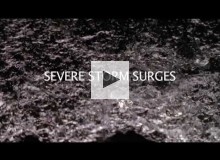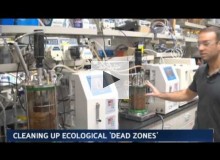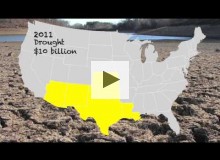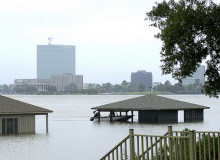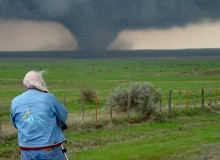Natural Disasters
Storms are getting bigger. Droughts are getting longer. As the climate changes, natural disasters are ramping up - here's how we're dealing with them, trying to prevent the worst consequences and learning how to clean up after them.
George Washington University
Hurricanes have cost Florida 3.5 billion dollars annually in recent years. With rising oceans and 80% of the population living near the coast these numbers are only expected to worsen. Can we afford inaction?
Planet Forward
Via International Institute for Environment and Development:
Stone lines or ("bunds") slow down runoff, incerease water infiltration and for the basis for improved production in semi-arid areas. At the same time, sediment is captured behind these... Read More
Next time you throw food away, think twice. Globally, we waste a third of the food that is produced for human consumption.
Environmental and Energy Study Institute
The Environmental and Energy Study Institute (EESI) organized a briefing on insurance industry perspectives on recent extreme weather events and how strategic investment can help manage the threats posed by a changing and more severe climate. In New... Read More
This week on Bloomberg West we featured an innovative water treatment project developed at Stanford University. The researchers are not only cleaning up our oceans, but they say they can produce energy from it, too!
Planet Forward, George Washington University School of Media and Public Affairs
When disaster strikes, people look for explanations - why did this happen? How can we prevent it from happening again? Hurricane Sandy is no exception.
If you haven't noticed, the United States has been having some strange weather lately. Parts of the country are under a drought, which hits farmers especially hard, while other regions are experiencing massive amounts of rainfall and flooding. At... Read More
Natural disasters can evoke detrimental damage to infrastructure with untold human casualties. According to the Asian Disaster Reduction Center, the frequency and relative ferocity of natural disasters on a global scale has increased, leading to... Read More
The University of Mississippi is using titanium dioxide to clean oysters affected by the BP Oil Spill. This video takes a look behind the science of titanium dioxide as well as the clean oysters' local impact on the restaurant industry.
National Science Foundation
A team of scientists from three universities has developed a weather-prediction system that will allow forecasters to predict tornadoes and other severe storms at least three days before the storms start.
Tornadoes and other severe weather outbreaks... Read More

